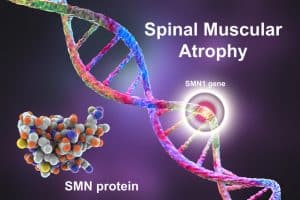
BMS enters gene therapy development deal
pharmafile | April 7, 2015 | News story | Research and Development | BMS, Bristol-Myers Squibb, R&D, cardiovascular disease, cvd, heart disease, heart failure, uniQure
Bristol-Myers Squibb (BMS) has signed a multi-million dollar agreement with Amsterdam-based gene therapy firm uniQure to boost research into new CVD treatments.
The partnership gives BMS exclusive access to uniQure’s gene therapy technology, which includes a programme to develop a treatment that can restore the heart’s ability to make S100A1, a calcium sensor that regulates heart function.
“Collaborating with uniQure, a clear leader in the field with an innovative and validated gene therapy platform, further strengthens our capability to bring forward transformational new therapeutics for difficult-to-treat diseases, including cardiovascular diseases such as heart failure,” comments Carl Decicco, who is the head of discovery R&D at BMS.
The biopharma firm will be responsible for marketing all products under the partnership and will lead development and regulatory activities. uniQure will continue to manufacture products using its vector technologies.
According to the two companies the collaboration could also see them work together on around nine other targets beyond cardiovascular diseases.
uniQure’s chief executive, Joern Aldag, says: “This collaboration will accelerate the application of gene therapy for large patient populations suffering from heart diseases and will complement the further development of uniQure’s internal pipeline in two focus areas – liver diseases, including haemophilia, and CNS, including lysosomal storage diseases.”
Under the deal BMS will make payments of approximately $100 million, including an upfront payment of $50 million, and a $15 million payment for the selection of three collaboration targets
uniQure will be eligible to receive various milestone payments of up to $254 million for its S100A1 programme, plus $217 million for every other gene therapy product developed under the collaboration.
uniQure is well-established in the field of gene therapy, having developed the first gene therapy product to receive regulatory approval in the EU. It has several collaborations to bring to market a pipeline of adeno-associated virus (AAV)-based gene therapies.
“It is immensely exciting to see the potential of our initial discoveries recognised first by uniQure and then advanced to a stage where we can build a portfolio of gene therapies to treat cardiovascular disease in partnership with BMS,” says Professor Patrick Most, the managing director of uniQure’s German division.
The two firms anticipate the collaboration will come into effect during the second quarter of 2015.
Tom Robinson
Related Content

HeartBeat.bio and biotx.ai partner to develop new drugs for heart failure
HeartBeat.bio and biotx.ai have entered a partnership to accelerate heart failure drug discovery by combining …

ANGLE’s Parsortix system used in new cancer biology research
ANGLE has announced three new peer-reviewed publications demonstrating the use of its Parsortix circulating tumour …

Novo Nordisk unveils new semaglutide data on obesity and heart disease at ECO 2025
Danish biopharma, Novo Nordisk, has announced that it will present new data on metabolic and …






